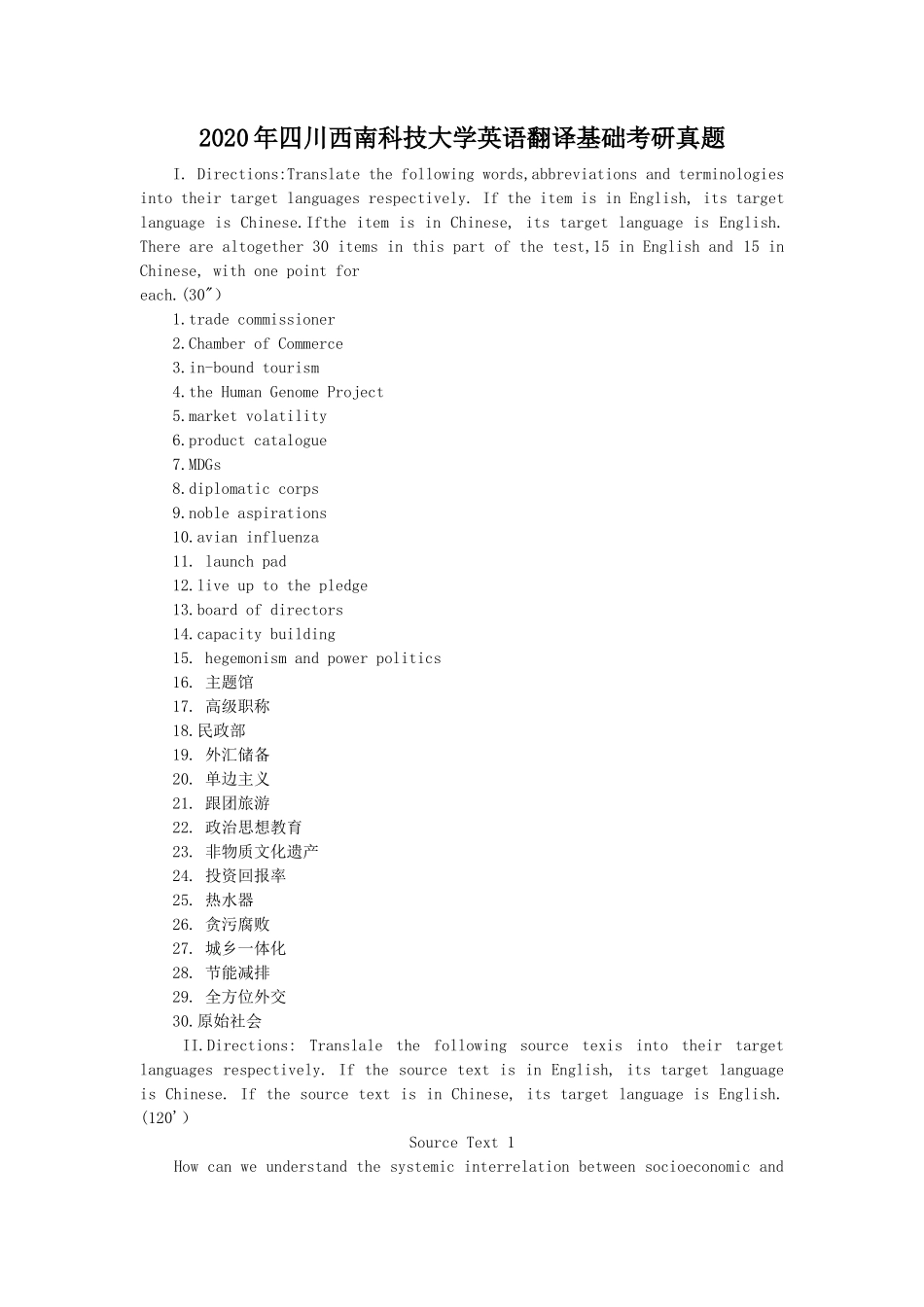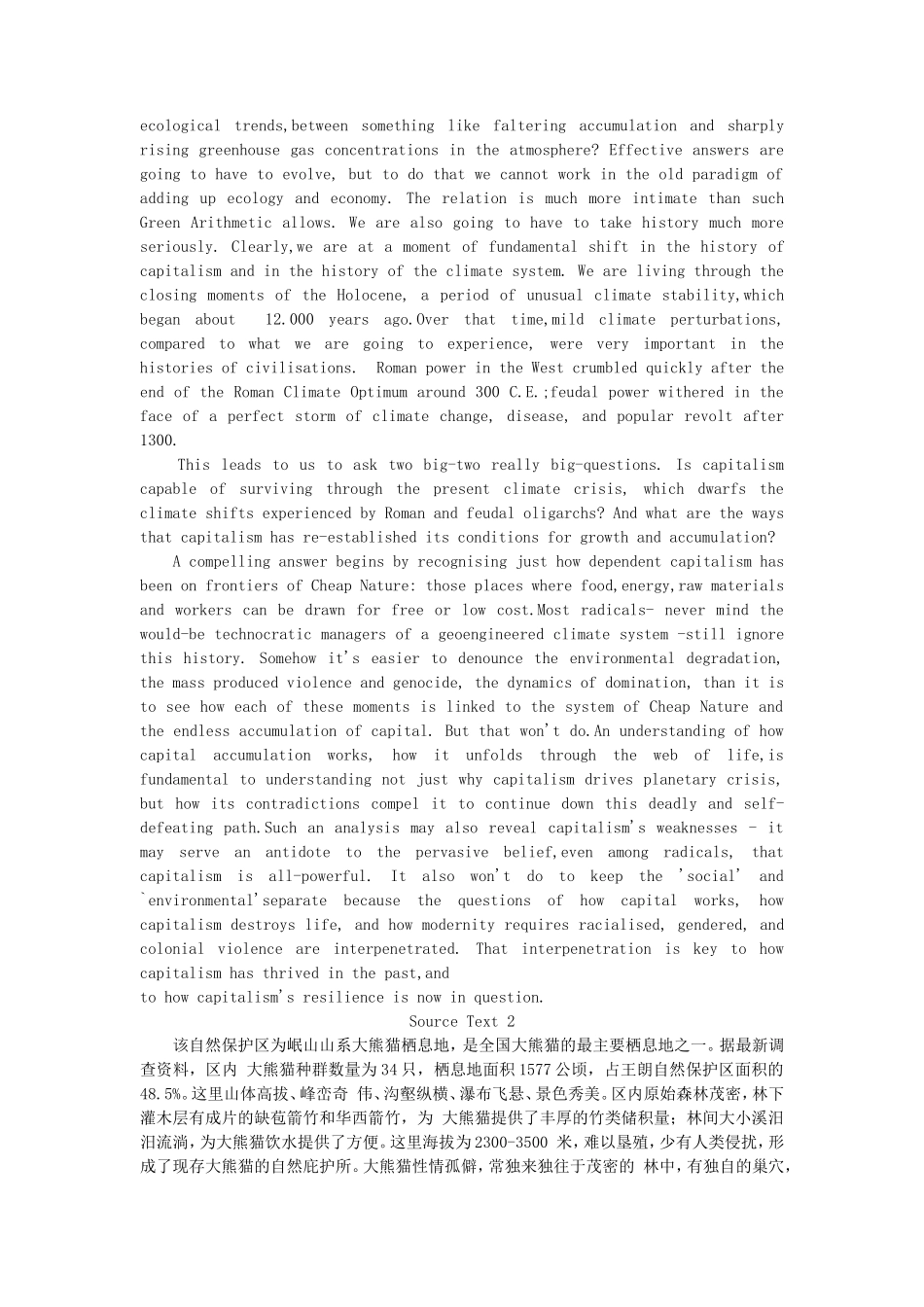2020 年四川西南科技大学英语翻译基础考研真题 I. Directions:Translate the following words,abbreviations and terminologies into their target languages respectively. If the item is in English, its target language is Chinese.Ifthe item is in Chinese, its target language is English. There are altogether 30 items in this part of the test,15 in English and 15 in Chinese, with one point foreach.(30") 1.trade commissioner 2.Chamber of Commerce 3.in-bound tourism 4.the Human Genome Project 5.market volatility 6.product catalogue 7.MDGs 8.diplomatic corps 9.noble aspirations 10.avian influenza 11. launch pad 12.live up to the pledge 13.board of directors 14.capacity building 15. hegemonism and power politics 16. 主题馆 17. 高级职称 18.民政部 19. 外汇储备 20. 单边主义 21. 跟团旅游 22. 政治思想教育 23. 非物质文化遗产 24. 投资回报率 25. 热水器 26. 贪污腐败 27. 城乡一体化 28. 节能减排 29. 全方位外交 30.原始社会 II.Directions: Translale the following source texis into their target languages respectively. If the source text is in English, its target language is Chinese. If the source text is in Chinese, its target language is English.(120')Source Text 1 How can we understand the systemic interrelation between socioeconomic and ecological trends,between something like faltering accumulation and sharply rising greenhouse gas concentrations in the atmosphere? Effective answers are going to have to evolve, but to do that we cannot work in the old paradigm of adding up ecology and economy. The relation is much more intimate than such Green Arithmetic allows. We are also going to have to take history much more seriously. Clearly,we are at a moment of fundamental shift in the history of capitalism and in the history of the climate system. We are living through the closing moments of the Holocene, a period of unusual climate stability,which began about 12.000 years ago.Over that time,mild climate perturbations, compared to what we are going to experience, were very important in the histories of civilisations. Roman power in the West crumbled quickly after the end of the Roman Climate Optimum around 300 C.E.;feudal power withered in the face of a perfect storm of climate change, disease, and popular revolt after 1300. This leads to us to ask two big-two really big-questions. Is capitalism capable of surviving through the present climate crisis, which dwarfs the climate shifts experienced by Roman and feudal oligarchs? And what are the ways that capitalism has re-established its conditions for growth and accumulation? A compelling answer begins by recognising just how dependent capitalism has been on frontiers of Cheap Nature: those places where food,energy,raw materials and workers can be drawn for free or low cost.Most radicals- never mind the would-be technocratic managers of a geoengineered climate system -still ignore this history. Somehow it's easier to denounce the ...


